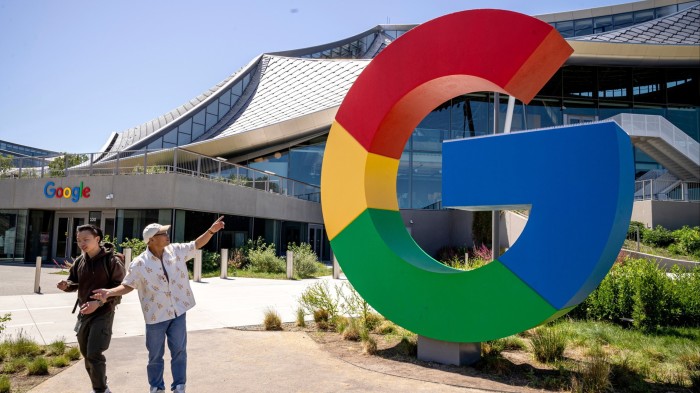Stay informed with free updates
Simply sign up to the Big Tech myFT Digest — delivered directly to your inbox.
The writer is a professor at the Massachusetts Institute of Technology and winner of the 2024 Nobel Prize in Economic Sciences
In 1913, Woodrow Wilson warned: “If monopoly persists, monopoly will always sit at the helm of the government. I do not expect to see monopoly restrain itself.” A century later, his words feel more urgent than ever. Silicon Valley’s tech giants have not only dominated markets through aggressive acquisitions, lobbying, and the systematic erosion of competition — they have embedded themselves within the machinery of government.
This accumulation of power is no accident — it is the product of decades of antitrust failures. Regulators repeatedly allowed tech giants to capture markets, buy competitors and reshape industries to their advantage. Once a hub of innovation, the sector now hosts some of the most powerful corporations in history. Before its break-up, the market capitalisation of Standard Oil was about $33bn in today’s dollars — a fraction of what Google, Amazon and Apple are now worth: $1.8tn, $1.8tn and $2.9tn, respectively.
Monopolisation has been most problematic where it has undermined our ability to communicate with one another. The cacophony of social media platforms like X and Facebook are symptoms of a deeper problem: the steady hollowing out of our independent news. At the centre of this decline is Google. By controlling the $876bn (and growing) digital advertising ecosystem, Google has transformed online advertising into a bottleneck that extracts profits while starving news organisations of revenue. A former Google executive compared its dominance to Citibank or Goldman Sachs owning the New York Stock Exchange — an arrangement unthinkable elsewhere.
The consequences are clear. As social media becomes more toxic and weaponised by extremists, reliable news continues to wither. Publishers, who rely on advertising to sustain independent reporting, are competing in a market where Google sets the terms and takes the largest share of profits. The impacts reverberate across society: consumers bear higher costs, competition erodes and democratic accountability weakens.
Yet the tides are turning. After last year’s seismic ruling that Google holds a monopoly in US search markets, last week a US court ruled that the company also holds a monopoly in the area that generates its vast profits — digital advertising. US district judge Leonie Brinkema stated: “Google has wilfully engaged in a series of anti-competitive acts to acquire and maintain monopoly power in the publisher ad server and ad exchange markets for open-web display advertising.”
Meanwhile, the EU is preparing to rule on a parallel case against Google’s dominance in advertising technology. These transatlantic efforts present a rare opportunity to reinvigorate antitrust enforcement. Europe has long recognised the need to strengthen its own tech sector and reduce its dependence on Silicon Valley. But this ambition cannot be realised unless monopolistic bottlenecks are addressed.
Silicon Valley defenders argue that breaking up companies will slow innovation, but monopolies are bad for innovation. When the telecommunications giant AT&T monopoly was forced to license its patents to all comers in 1956, and eventually broken up, it helped drive the digital revolution.
Break-up alone isn’t enough — reform must ensure fair competition, benefiting society rather than tech oligarchs and empowering citizens instead of exploiting their data. My fellow MIT economist Simon Johnson and I propose a 50 per cent levy on digital ad revenues above $500mn annually to curb Google and Meta’s dominance and create space for competitors. The EU has taken early steps with the Digital Markets Act and Digital Services Act, but the Google ad tech case presents the opportunity to go beyond fines and set a global precedent for meaningful antitrust enforcement and competition.
Despite the Trump administration’s support for parts of the tech ecosystem, many conservatives remain critical of Big Tech. US vice-president JD Vance once praised former US Federal Trade Commission chair Lina Khan for re-energising US antitrust enforcement. This latest ruling on Google, alongside an active trial against Meta, demonstrates that there may be a durable bipartisan support for stronger antitrust action.
Now Europe should finish the job. For too long, Silicon Valley has dictated the rules of the internet, shaping markets to serve its own interests while competition dwindles and inequality soars. By setting course to break up Google’s advertising monopoly, Europe can show that democratic institutions, not monopolies, should shape our digital future.
Read the full article here




